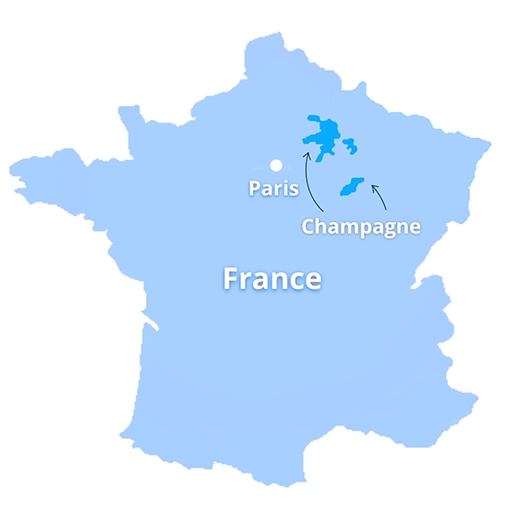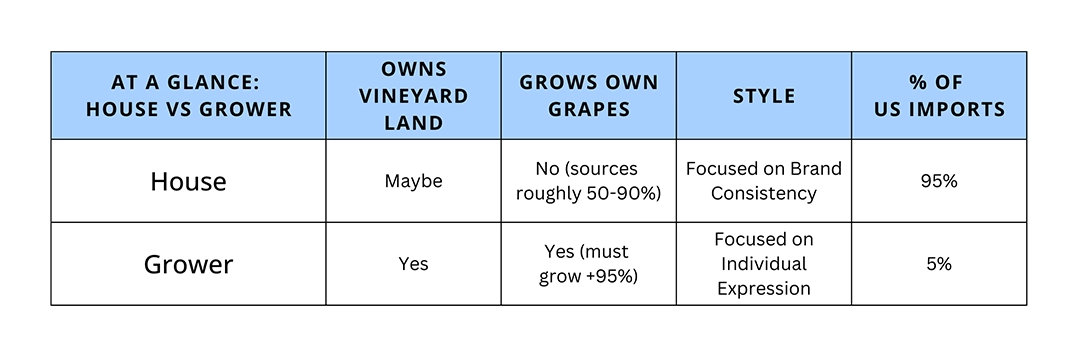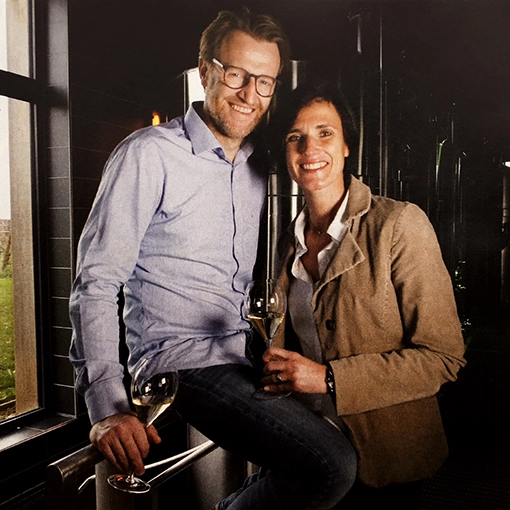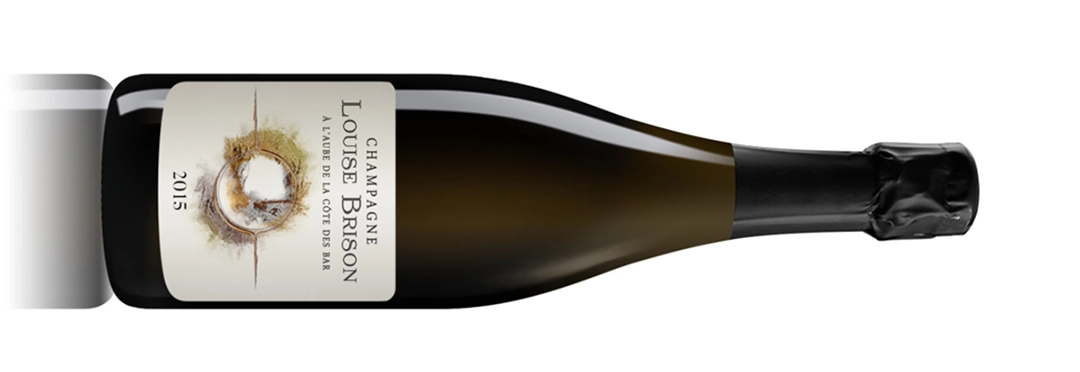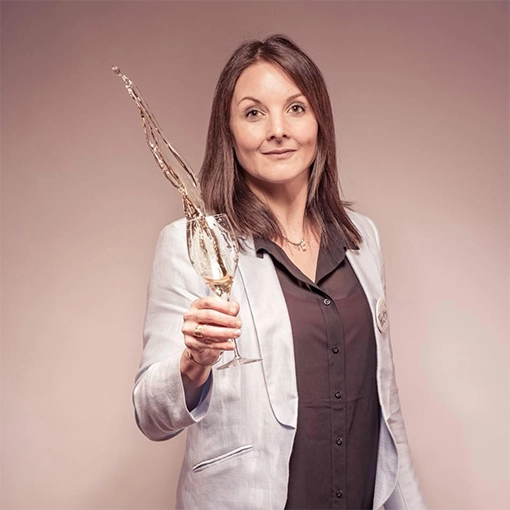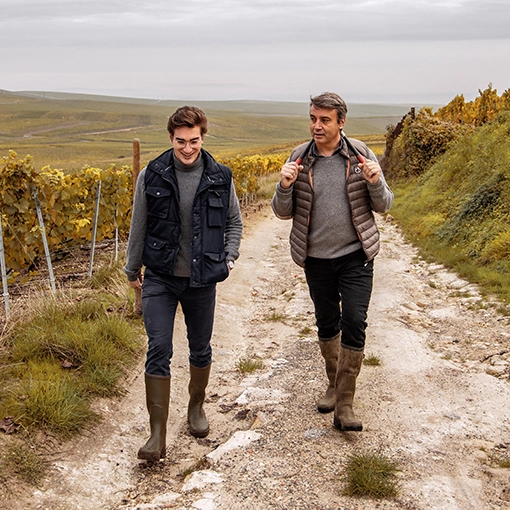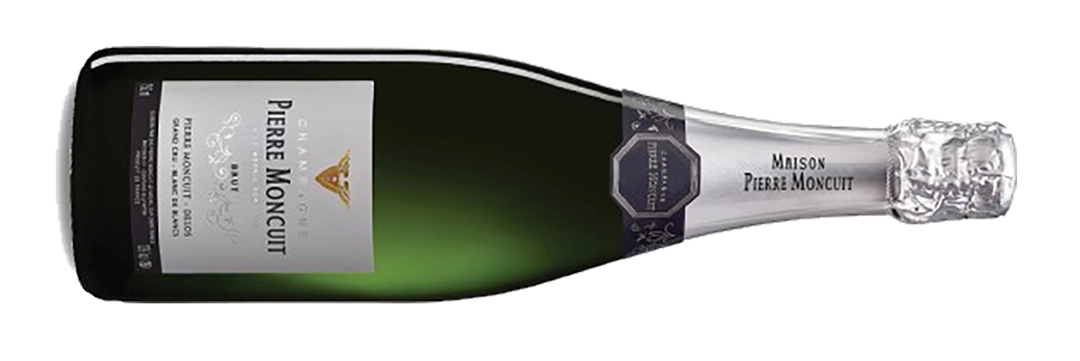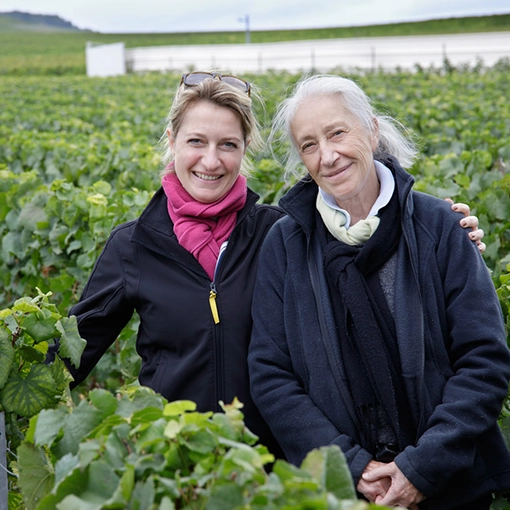In partnership with Serendipity, the following wines are available in the Texas market.
When in doubt, Champagne. And if your OND is moving as fast and as furious as ours is, chances are you could use some. This month we’re honing in on a specific style that accounts for roughly just 5% of all Champagne imports to the US: the tiny but mighty Grower Champagne. Heralded by wine pro’s and enthusiasts alike for its artisanship and rarity, if you haven’t had the chance to dive into this niche wine category until now, don’t panic! We’ve gathered a heroic bunch of Grower Champagnes you’ll just have to add to your list. But first, let’s take a brief refresh on what made us fall in love with Grower Champagne in the first place.
What is Grower Champagne?
Simply put, Grower Champagne is crafted by the same farmers who tend their own vineyards. They usually own their own land and are required to grow at least 95% of their own grapes. Because of these rules, there’s a real intimacy with the land— many producers just own a single vineyard or a small cloister of vineyards around a village. Production is a lot more hands-on and meager in volume, allowing for clearer expressions of terroir and vintage to shine through. In addition, this grants growers the freedom to focus on the expression of a solo vineyard or grape variety.
In contrast, a House Champagne sources grapes from multiple growers in a negociant model similar to what they do in Burgundy. Wines from these larger houses account for a majority of the Champagne you see in the world— making up 95% of production, these are the bottles responsible for Taylor Swift’s Champagne problems. They are consistent, typically non-vintage, blends from across the 19,000 vineyards in the region and couldn’t be more different than their hyper-localized, grape-to-glass counterpoint.
While we love both styles equally, today is all about the Grower Champagne. Here are the four you should be drinking right now:
LaCourte Godbillon Terroirs D’Ecueil Non-Vintage
Fresh out of the shipping container, we’re excited to share our newest Grower Champagne! LaCourte Godbillon has been helmed by Géraldine Lacourte and her husband Richard Desvignes since they left their corporate jobs in 2006 to continue the winemaking traditions set out by Géraldine’s parents. The LaCourte’s postwar venture into crafting their own wines began in 1947 after many years of selling their grapes to larger houses. Their ethos (namely that great winemaking starts in the vineyard) earned them early success— which is matched by their present day recognition for using biodynamic methods and overcoming harsher vintages with an unusual tenacity. They are situated almost entirely in the Premier Cru village of Écueil in Montagne de Reims with a touch of vines in the neighboring village of Les Mesneux. The Terroirs D’Ecueil is their signature Champagne and is one of those wines that will instantly have you on the edge of your seat— it’s broad, with a savory umami quality and complex, endless fruit notes.
Champagne Louise Brison A l’Aube de la Cote des Bar 2015
Our next stop is in the Aube for jaw-droppingly good, barrel-aged Champagne. Grower bottlings have been on the rise over the last few decades in this area of the Cotes des Bar corner of Champagne. They have fast been gaining a reputation for mineral precision, owing partially to the Kimmeridgian soils we know and love in neighboring Chablis (a mere 25 miles away). The story here begins with Louise Brison, a woman who essentially survived on a few hectares of vines in the early 1900’s before there was any money in the grape-growing business. Fast forward a hundred years and her descendant, Delphine Brulez, has stepped in. She brings with her several impressive degrees in oenology and agronomy engineering. Delphine converted their 15 hectares fully to organics and is a firm believer in old-school methods of winemaking. The 2015 A l’Aube Cote des Bar is a 50/50 blend of Chardonnay and Pinot Noir, spontaneously fermented in stainless steel and then oak aged in neutral barrels. Expressive white fruits, a generous tang of citrus, and subtle rose notes combine in a bubbly that is fresh, elegant and balanced.
Lancelot Pienne Accord Majeur Non-Vintage
Candied quince, dried apricot, roasted hazelnut, & compote— if that doesn’t sound like Fall in a glass then I don’t know what does. This wine was carefully crafted by oenologist Gilles Lancelot in Cramant, although his holdings extend from the Côtes des Blancs into Côteaux Sud d’Epernay, and reach into the Marne Valley. They cover 8.5 hectares that span an incredible 60 separate plots! Gilles has roots that date back to Jean-Baptiste Lancelot who, fun fact, initially was the head winemaker for Mumm. Today their numerous vineyards are practicing organic farming, omit herbicides, and take environmentally conscious measures like tillage and grassing. For this bottling in particular, 80% Pinot Meunier, 10% Chardonnay, and 10% Pinot Noir are fermented in stainless steel before undergoing Malolactic fermentation. Like many other Grower Champagne producers, they use a lower dosage than most Champagne Houses. This can help subtle vintage and terroir variation shine through. Critics describe the Accord Majeur wine as having incredible emotional length.
Moncuit Delos Grand Cru Extra Brut Blancs de Blanc Non-Vintage (sort-of)
We’re back in Côtes des Blancs territory for lively, quintessential expressions of Chardonnay at the highest caliber: Grand Cru Champagne. The brilliant minds behind this estate are siblings Nicole and Yves Moncuit along with Nicole’s daughter (Valerie), and they’ve been running operations since 1977. Their legacy reaches as far back as the late 19th century. There are several factors that make Moncuit Delos stand out, but among them is their unique vine age. It’s tough to find older rootstock in Champagne— many vines are replaced on their 25th birthday. Moncuit Delos’ vine age, though, rises well above a thirty year average. And in fact, their limited Cuvee Nicole is the culmination of vines that are 100+ years old. In another surprisingly unique twist, this estate also produces all of their wines from a single vintage, including the ones that are labeled as non-vintage. Moncuit Delos embodies a deep care for expressing seasonality. Kick start your Grand Cru collection with this special (silently vintage) Chardonnay for an immersive, textured experience.
Grower Champagne isn’t simply charming, it often tells the stories of rare vineyard sites alongside the families who manage them. These are stories of tradition and innovation and an authenticity that you can quite physically taste. So what are you waiting for, which will you try first?


